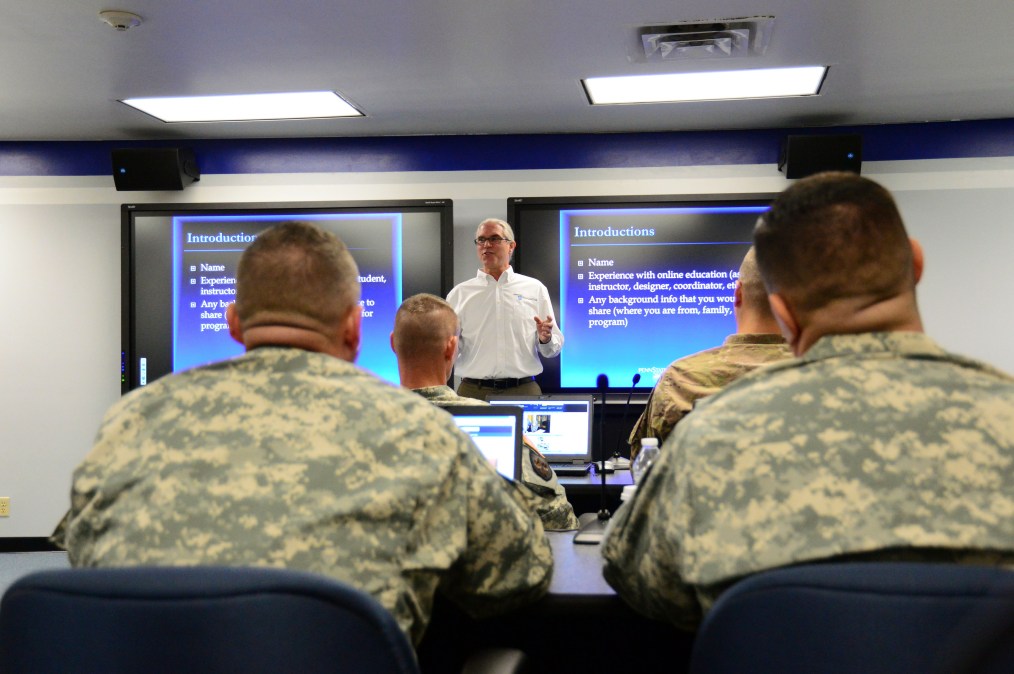Despite open jobs, veterans face problems landing civilian cybersecurity roles

This report first appeared on CyberScoop.
Jumping from the military or intelligence community to private sector cybersecurity firms is a career track everyone knows about but surprisingly few have actually done. Low morale at places like the National Security Agency and high salaries outside of government drive personnel away from Washington, D.C., and into the waiting arms of Silicon Valley.
But it’s not always a simple jump, especially for military veterans trying to find their way into the booming industry.
Coming from a world that’s often indecipherable to civilians, veterans face a mountain of challenges entering the cybersecurity workforce despite over a million vacant cybersecurity jobs existing as of 2015 — a number that illustrates an industry begging for new talent.
In the U.S. military, career progression doesn’t require the certifications and academic degrees that are highly valued in the private sector. There is often no clear cybersecurity career path available when serving.
Companies like Cyber Warrior Network, founded by veteran Nigel LeBlanc, exist to bridge the chasm between private and military. The challenges for veterans and potential employers include effectively translating military experience, knowledge, skills and abilities to traditional resumes in a way that makes sense to people who have never served. Just 7.3 percent of living Americans have served in the military at some point in their lives, making that translation a vital skill for the transition.
At the 2017 South By Southwest Conference, LeBlanc was joined by Western Governors University Chancellor Veronica Stidvent, Texas Business Association Director Belinda Matingou and CompTIA Vice President Elizabeth Hymen on a Sunday panel that bemoaned, among other things, the slow state of education that often failed to adequately prepare veterans for the rapidly changing cybersecurity profession.
“The biggest issue is the employers identifying exactly the threat they face and reverse engineering that to figure out exactly who they need,” LeBlanc said. “If you have an evolving threat and you have somebody who is in their last semester, by the time they graduate there are a million new threats. How do you train people for that? And then understand that you don’t need someone with a bachelor’s, you can get somebody who’s competent within a combination of skill set to work within whatever skill set you’re looking at.”
CompTIA, a trade association for the computer industry, received a grant last year from the National Institute of Standards and Technology’s National Initiative for Cybersecurity Education (NICE) to partner with Burning Glass to develop CyberSeek.org, a resourced aimed at making sense of the wide open but still opaque cybersecurity job market.
“Technology has moved so fast over the last couple of years that there’s always a little bit of a lag between when skills are demanded and when training programs and college programs and certifications can catch up,” Tim Herbert, CompTIA’s senior VP for research and market intelligence said. “There’s also a much greater use of technology across all sectors. The tech sector is the biggest employer of tech skills but we’re also seeing hiring in manufacturing, healthcare, financial services and down the line. There’s simply more demand relative to supply.”
Cybersecurity jobs nearly doubled from 2010 to 2014 and the pay beat out average IT salaries by 9 percent, a number with room to grow considering sustained increased awareness and concern around digital security.
But increased specialization means greater challenges entering the workforce. That’s a challenge no doubt but, for Cyber Warrior Network, a business opportunity as well.






